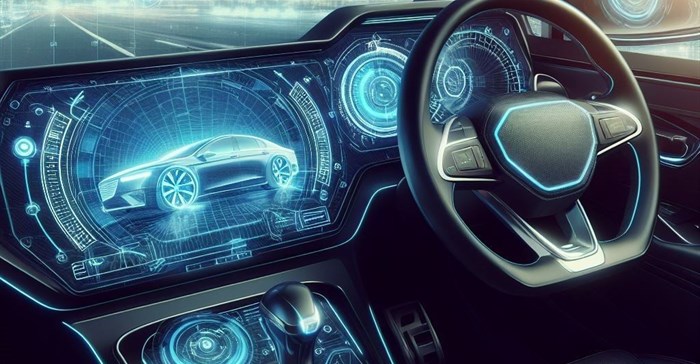
John Wall, SVP and head of QNX at BlackBerry, emphasises the crucial role of trust: "New in-vehicle experiences powered by technology will revolutionise how we interact with our cars, but automakers face challenges in fostering public trust in these technologies."
Similar to other aspects of our lives becoming increasingly software-defined, so too are our cars. The past decade has seen a surge in the use of vehicle, driver, and sensor data, raising concerns about data breaches, privacy, and the integrity of features like autonomous driving.
These concerns are not unfounded, as evidenced by the recent US recall of millions of Tesla vehicles due to shortcomings in their autonomous features.
"In 2024, collaboration is key," argues Wall. "Automakers must work together to build consumer trust in new vehicle enhancements. The tech industry needs to equip them with reliable IoT and cybersecurity systems, while keeping regulators and the public informed. By working together, we can restore faith in data sharing and unlock the potential of automotive technologies."
Advanced, cloud-based digital twins are transforming automotive development. They help identify integration issues early, allowing more developers to participate in the design process before hardware is available.
This cloud-based system fosters collaboration and reduces risk, enabling teams to connect with the best designers globally.
"Creating a true-to-life virtual development environment for embedded software is crucial," Wall explains. "Soon, virtual cockpit high performance compute (HPC) simulation will allow car companies to virtualise graphics, audio, and other inputs in the cloud, enabling earlier prototyping, scaling development teams, and reducing time-to-market."
This will pave the way for the world's first whole vehicle simulation in 2024
Wall highlights the benefits: "This will allow any automaker to accelerate software delivery, and leverage the cost, collaboration, and time-saving advantages of cloud development. This true-to-life virtual development environment will streamline the process, accelerate innovation, and cut costs throughout the entire product lifecycle."
"Safe, secure, and reliable systems will enable seamless upgrades," says Wall. "Imagine technology that judges tire wear, personalizes in-car entertainment, monitors teenage driving habits, analyses incidents, pays for fuel contactless, or even monitors driver alertness. While this might seem futuristic, automotive developers are already building these functionalities using the latest operating systems."
"Scalable, high-performance real-time operating systems (OS) enable embedded software design to support safe, secure, and reliable systems that benefit from future CPU advancements," he says.
"When in-car technology is based on these innovative systems, automakers can seamlessly upgrade functionalities related to electrification, e-commerce, safety, vehicle lifecycle, and the in-cabin experience – not just in future models, but potentially even in your current car."
According to Wall, audio is an exciting area to watch. Innovative and high-quality audio is central to the software-defined vehicle. New software allows decoupling audio and acoustics software from vehicle hardware, giving designers and engineers complete creative freedom to deliver exceptional in-vehicle sound experiences.
This includes everything from basic functionalities like hands-free calling and noise cancellation to advanced infotainment and safety features.
"In 2024, this software will not only enhance audio quality and functionality but also unlock new revenue streams from the activation of optional features," Wall explains.
"Upgrades to premium, branded audio services offer new value-adding features to vehicles, fostering exciting collaborations that appeal to and excite end users."
Automakers who differentiate themselves through superior sound could gain a significant edge in 2024
The future of automotive is connected, innovative, and built on trust. By working together to address concerns and harness the potential of technology, the industry can unlock a future of safer, more personalised, and exciting driving experiences for all.